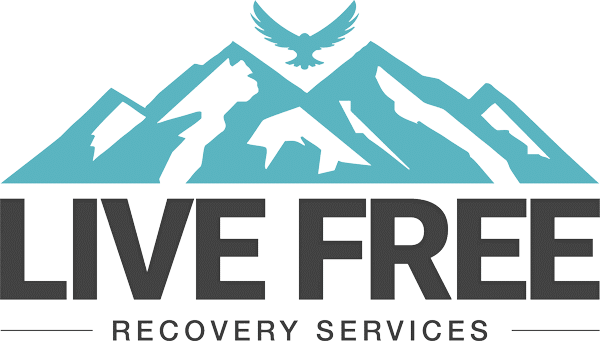
What Are Character Defects? The Missing Piece in Addiction Recovery
Home » Blog » What Are Character Defects? The Missing Piece in Addiction Recovery
Addiction is a remarkably complex condition that stems from an interconnected network of complex underlying issues, which is why some people seem to struggle with addiction far more than others.
While the physical dependence on substances can play a significant role here, there’s another crucial factor that often gets overlooked while seeking addiction treatment, which is character defects.
In fact, some experts believe that tackling this underrated issue is actually the key to a lifelong recovery and breaking completely free from the shackles of addiction.
This article will help you find out more about the concept of character defects by exploring their influence on addiction and the steps you can take to address them during recovery.
Table of Contents
- A Brief Overview of Character Defects and How They Influence Addiction
- What Are the Most Common Character Defects That Result in Substance Abuse?
- How to Address Character Defects While Treating Addiction?
- Treatment Options to Fix Character Defects After Detoxification
- Finding the Best Addiction Treatment in New Hampshire
A Brief Overview of Character Defects and How They Influence Addiction
Character defects describe the negative personality traits and behaviors that contribute to addiction, either by making it difficult to stay abstinent or by encouraging substance use in the first place.
For instance, character defects can lead to addictive behaviors as someone turns to substance abuse to escape negative emotions or situations they don’t know how to handle or develop healthy coping mechanisms.
Similarly, people with character defects like impulsivity or fear may turn to substances to cope with difficult emotions or situations, which is also common among those struggling with anger or trauma.
Character defects are also widely established as the primary cause of addiction in almost all forms of addiction, especially in programs like Alcoholics Anonymous (AA) and Narcotics Anonymous (NA).
In addition to causing addiction and making it harder to achieve long-term recovery, character flaws and defects can lead to heavily strained relationships with loved ones, which requires special therapy sessions to address and overcome.
What Are the Most Common Character Defects That Result in Substance Abuse?
While character defects may include a huge variety of traits, some of them are more deeply involved with substance abuse than others. In this section, we’ll take a quick look at them and how they can cast their effect on individuals struggling with addiction.
Resentment and Anger
Holding onto negative feelings towards others can create distance and prevent healthy relationships – a vital aspect of recovery.
These defects of character can stem from unresolved conflicts or a sense of being wronged. It’s usually the result of isolation associated with intense dependence and addiction.
Resentment is also quite harmful because it keeps you focused on the past, hindering your ability to move forward and build a fulfilling life.
Denial and Self-Justification
Another character defect that often leads to addictive behaviors is denial. This happens when an individual continues to deny or downplay certain issues, signs, or triggers.
The problem with denial is that it impedes our ability to progress, take responsibility for our actions, and seek help.
That being said, it also doesn’t mean that an individual should wallow in guilt and shame. Instead, a person needs to focus on self-awareness and honest evaluation to make positive changes in their lives.
Self-Pity
Besides generating resentment, dwelling on past injustices and traumas can also cause a feeling of perceived injustice that causes hopelessness.
Falling into the trap of self-pity pushes a lot of people with low self-esteem to seek temporary validation. In that case, they might end up abusing certain drugs to enjoy their euphoric effects.
The problem here is that the effects of these drugs are quite fleeting and short-lived, leaving people suffering from a lone battle with severe addiction.
Fear
Irrational fear of failure and judgment causes severe vulnerability to drug use and can prevent people from seeking help or taking necessary steps to start their recovery process.
In fact, fear is one of the most deeply ingrained character defects and takes a lot of time to get over during addiction treatment.
Obsession with Perfectionism
Many people might think that perfectionism is always a good thing. While striving to improve is always a great thing, too much of a good thing is never good for you, and perfectionism is an example of this.
This character defect is remarkably common among individuals who struggle with stimulants, as they often start using them for their perceived enhancement of performance. However, it may only take as little as a single use to get hooked to these substances.
Enabling and Codependency
While most of the previous character defects are usually associated with individuals using the drug, these traits are typically linked with those around them.
A codependent person will often prioritize other people’s needs over their own. However, if the other person is struggling with addiction, they can start making excuses for their behaviors and show enabling traits.
As a result, the loved ones might end up supporting a person’s addiction by shielding them (temporarily) from the consequences of addiction, which prevents them from getting early help.
Egotism
A focus on self can create a solid barrier that prevents connection and makes it difficult to accept help from others, especially since it’s always associated with a lack of self-reflection.
However, there’s a fine line between a healthy sense of self-worth and an inflated ego that could be isolating and destructive.
Impulsivity
Acting without considering consequences isn’t only a hallmark of addiction but also a common issue among relapse-prone individuals.
Impulsivity can take a wide range of forms, but the only deeply associated with addiction is engaging in risky behaviors and abnormal interest in trying new drugs.
Treating this trait is also tricky because learning to delay gratification and making thoughtful choices takes a lot of effort from both patients and therapists.
How to Address Character Defects While Treating Addiction?
Unchecked character defects can be a serious hindrance before and even during treatment. In fact, working on fixing those defects is one of the most critical aspects of a successful and relapse-free treatment.
Of course, medical detoxification is a crucial first step in almost any form of addiction. However, it only cleanses the body of the addictive substance without working out the behavioral and mental health problems that act as underlying causes of addiction.
Without addressing these issues, the risk of a relapse following exposure to certain triggers becomes much higher.
Luckily, modern addiction treatment centers have evolved to include a wide variety of treatment approaches that can help with these character traits, but more about that in the following section.
Treatment Options to Fix Character Defects After Detoxification
Addiction treatment programs now include a wide range of evidence-based approaches to address and fix character defects. These treatments often follow the detox phase and are carried out by a qualified professional. Here’s a quick look at some of them.
Individual Therapy
One-on-one therapy provides a safe and confidential space for individuals to explore the root causes of their character defects and seek personal growth.
Therapists use various approaches during these sessions. The most popular one is cognitive-behavioral therapy or CBT. This one helps individuals identify and challenge negative thought patterns that contribute to addiction.
CBT also includes other subclasses of treatment, such as dialectical behavior therapy, commonly known as DBT.
This approach focuses more on the emotional aspect that leads to addiction, which allows individuals to fight the urge and maintain emotional regulation against triggers.
Group Therapy
Support groups offer a powerful tool for addressing character defects, which is done through sharing experiences with others who understand the struggles of addiction.
Creating a recovery network encourages a sense of belonging and reduces the isolation often associated with addiction and recovery.
Group therapy can also include relationship therapy sessions, which focus on fixing the broken trust between couples and family members because of addiction.
12-Step Recovery Programs
Programs like Alcoholics Anonymous (AA) and Narcotics Anonymous (NA) offer a structured approach to recovery with a strong emphasis on addressing character defects.
The most popular one is the 12-step program, which focuses heavily on peer support and self-reflection.
These programs are often religious in their nature, as individuals seek the help of god or higher powers to overcome their daily stressors and challenges.
For example, step 6 of the 12-step program is identified as “the fearless moral inventory”. This one is specifically designed to help individuals identify their character defects through self-reflection and discovery.
Supportive Treatments
Besides therapy and the 12-step approach, medical professionals will also recommend a wide range of supportive and holistic treatments.
On their own, these methods can’t help with addiction. But when combined with other forms of treatment, they can greatly increase their effect.
For example, these treatments often include meditation, workouts, yoga, breathing exercises, acupuncture, etc.
Finding the Best Addiction Treatment in New Hampshire
Character defects are a significant obstacle in addiction treatment. Fortunately, with the help of qualified professionals and evidence-based approaches, individuals can develop the self-awareness necessary to overcome these defects and build a life free from addiction.
If you or someone you love is struggling with addiction or shows high-risk behaviors, don’t hesitate to contact Life Free Recovery Center to get expert consultation and treatment services.
Published on: 2024-07-10
Updated on: 2024-08-17
